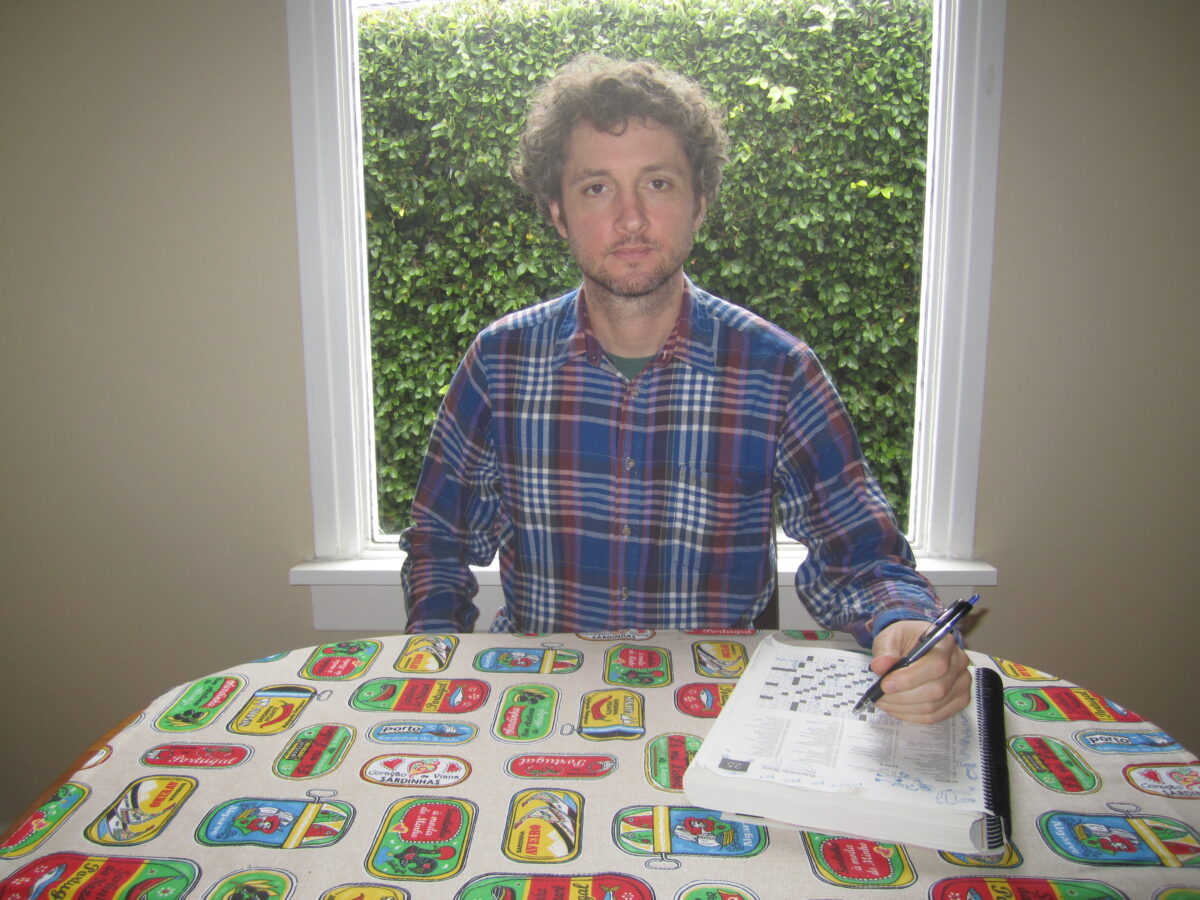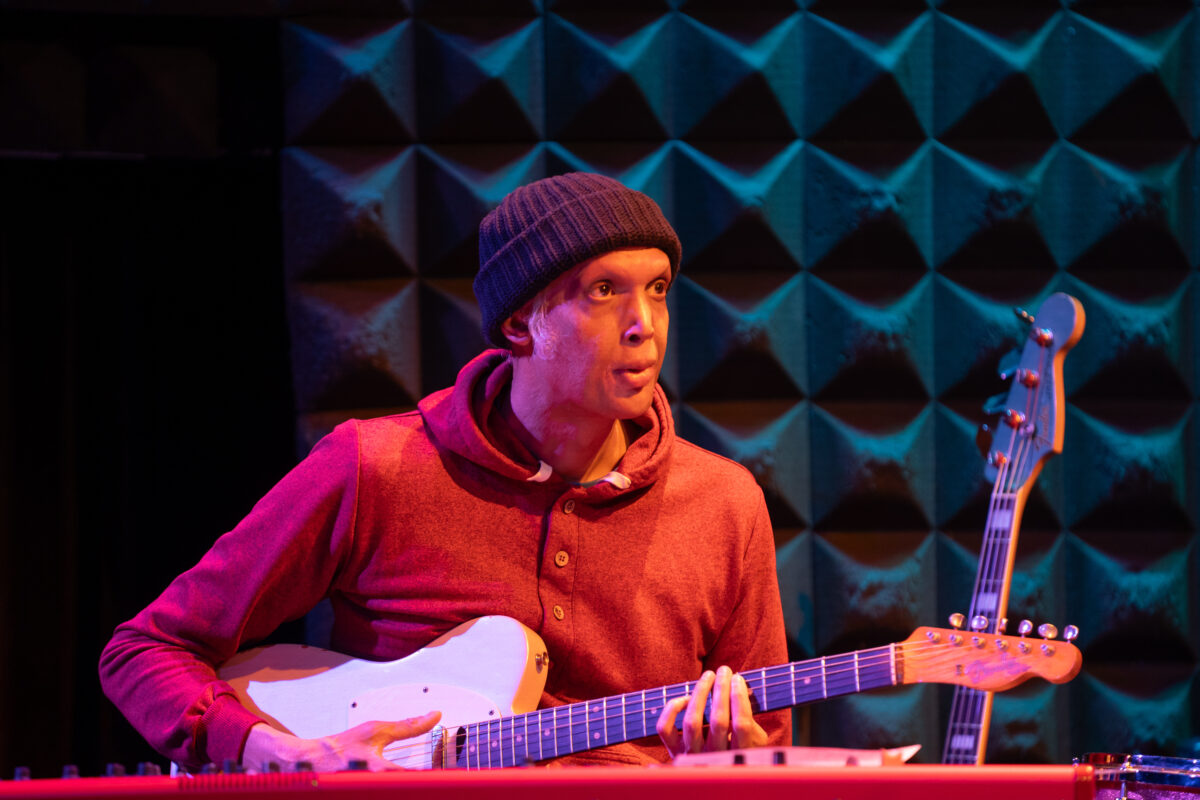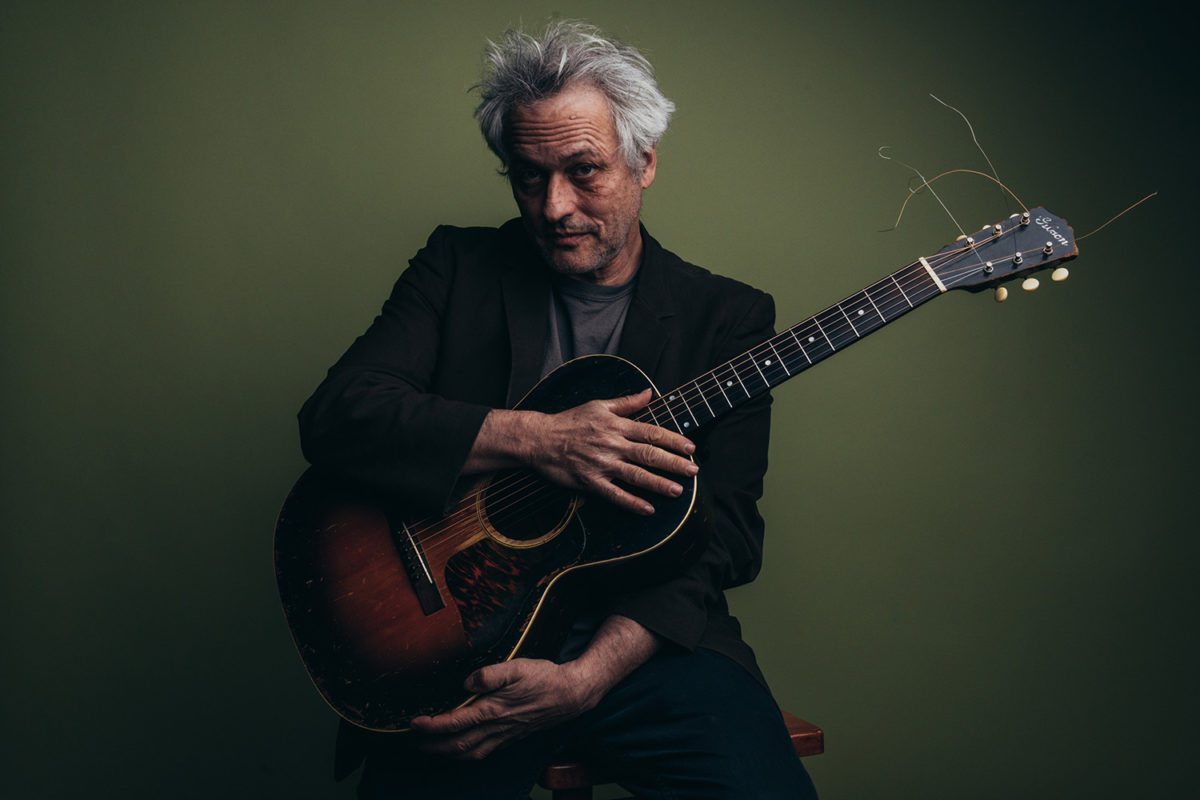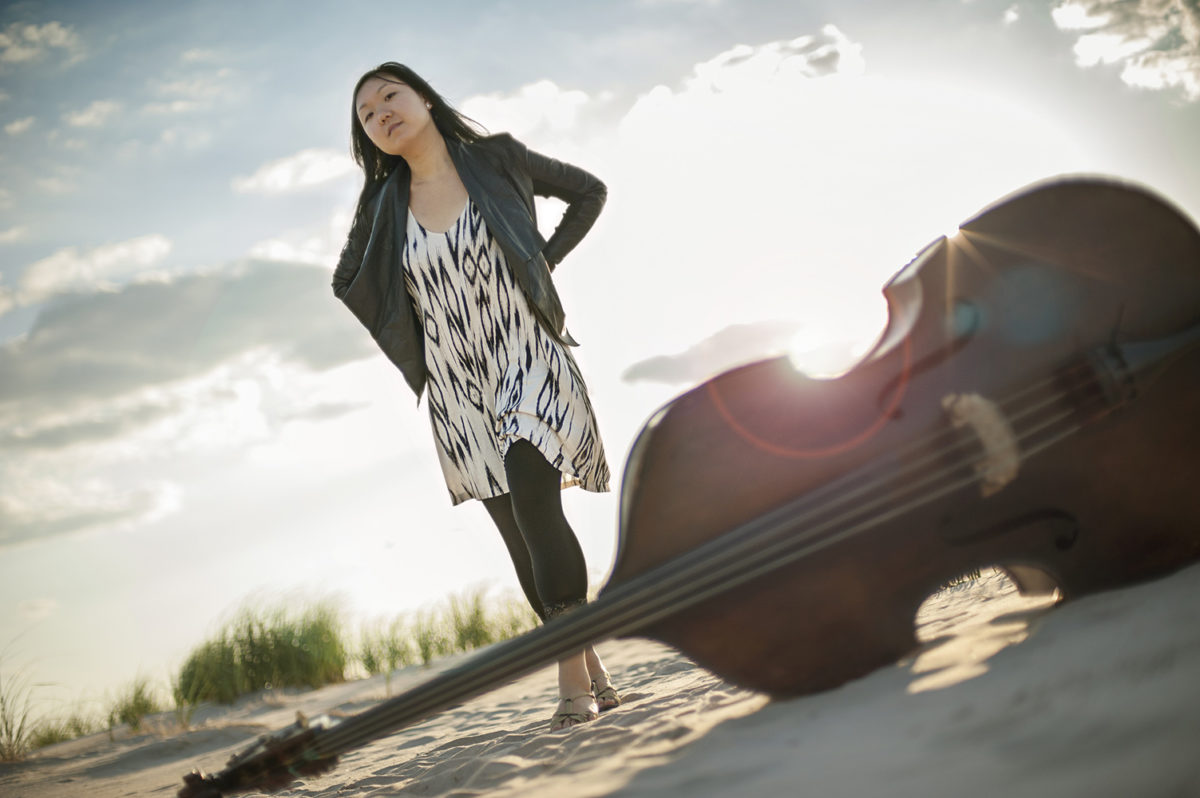NYC Winter Jazzfest Presents
Jan
09
with Andrew Cyrille, Shahzad Ismaily, Jeremy Gustin, Marc Ribot, Kris Bowers, Richard Sears, Curtis Fowlkes, Ben Goldberg, Sam Gendel & Linda Oh
Mon January 9th, 2017
8:00PM
Main Space
Minimum Age: 18+
Doors Open: 7:00PM
Show Time: 8:00PM
Event Ticket: $20
Day of Show: $25
On Monday, January 9, genre-bending multi-instrumentalist and vocalist Sam Amidon presents a highly unpredictable program of his own music at (le) poisson rouge. A cast of improvising musicians will support, reflect and challenge Amidon’s music, including bassist and multi-instrumentalist Shahzad Ismaily, clarinetist Ben Goldberg and others to be announced. Amidon shall be the only constant on stage. A mix of previous collaborators and artists he’s never met before will weave together a night of one-of-a-kind music.
Other confirmed musicians include saxophonist Sam Gendel, clarinetist Ben Goldberg,, bassist Linda Oh, the guitarist Marc Ribot, keyboardist Kris Bowers, pianist Richard Sears and drummer Jeremy Gustin.
The night will begin with a solo performance by Winter Jazzfest artist-in-residence Andrew Cyrille.

Ticketing Policy
TABLE SEATING POLICY Table seating for all seated shows is reserved exclusively for ticket holders who purchase “Table Seating” tickets. By purchasing a “Table Seating” ticket you agree to also purchase a minimum of two food and/or beverage items per person. Table seating is first come, first seated. Please arrive early for the best choice of available seats. Seating begins when doors open. Tables are communal so you may be seated with other patrons. We do not take table reservations.
A standing room area is available by the bar for all guests who purchase “Standing Room” tickets. Food and beverage can be purchased at the bar but there is no minimum purchase required in this area. All tickets sales are final. No refund or credits.
2
4
7
8
9
10
Sam Amidon

Sam Amidon is a singer and multi-instrumentalist (banjo, guitar, fiddle) from Vermont, now based in London, England. He has released seven acclaimed solo albums of songs on Bedroom Community and Nonesuch Records, the most recent of which is 2020’s “Sam Amidon.” He is currently working on a new album to be released this year.
Amidon’s material for these albums often consists of adventurous reworkings of traditional American ballads, hymns and work songs, with the New York Times writing that Amidon “transforms all of the songs, changing their colors and loading them with trapdoors.” The albums have been deeply collaborative in nature, inviting contributions from musicians such as composer Nico Muhly, guitarist Bill Frisell, and legendary percussionist Milford Graves.
Sam Amidon has recorded or performed as a guest artist with musicians such as Bon Iver, Emmylou Harris, Tune-Yards, The National, John Prine, Jason Moran, and Amidon’s wife, Beth Orton. He has also appeared internationally as a soloist performing with ensembles such as the Kronos Quartet, the Australian Chamber Orchestra, The Aurora Orchestra, The Oregon Symphony and the Britten Sinfonia.
Andrew Cyrille

Shahzad Ismaily

Shahzad Ismaily was born in the States to Pakistani parents who emigrated here just before his birth. He grew in a bicultural household, always following a multitude of paths and perusals. He is mostly self-taught as a musician, composer, recording engineer, and producer. He primarily plays electric bass, drums, percussion, guitar, synthesizers, and all manner of sound-makers procured in life’s travels. He has recorded and performed with a diverse crew of artMakers, Yoko Ono, Laurie Anderson, Beth Orton, Colin Stetson, Ben Frost, Bonnie Prince Billy, Damien Rice, Jolie Holland, JFDR, Secret Chiefs 3, Sam Amidon, further and further. He has been an integral member of festival/residency/collective experiences such as the People Festival (the brainchild of Bon Iver, The National, and the Michelberger), the Eau Claires festival, the Moers Festival. He has done work for dance and theater pieces, such as the film Frozen River (Oscar-nominated and Sundance award-winning), Inkboat (a butoh crew from California/Switzerland), and visual artist Laleh Khorramian. This year alone, he’ll teach in residence at BANFF, the Oklahoma Center for Contemporary Arts, the Monheim Triennale, and very happily, the Atlantic Center for the Arts. Currently based in Brooklyn and working out of the recording studio collective he founded and created, Figure 8 Recording, he has studied music extensively in Pakistan, India, Turkey, Mexico, Chile, Japan, Indonesia, Morocco, and Iceland.
Jeremy Gustin

Marc Ribot

Marc Ribot official site | Marc Ribot on Twitter | Marc Ribot on Facebook
Marc Ribot, who the New York Times describes as “a deceptively articulate artist who uses inarticulateness as an expressive device,” has released over 20 albums under his own name over a 30-year career, exploring everything from the pioneering jazz of Albert Ayler to the Cuban son of Arsenio Rodríguez. His latest solo release, Silent Movies (Pi Recording 2010) has been described as a “down-in-mouth-near master piece” by the Village Voice and has landed on several Best of 2010 lists including the LA Times and critical praise across the board. 2013 saw the release of “Your Turn” (Northern Spy), the sophomore effort from Ribot’s post-rock/noise trio Ceramic Dog, and 2014 saw the monumental release: “Marc Ribot Trio Live at the Village Vanguard” (Pi Recordings), documenting Marc’s first headline and the return of Henry Grimes at the historical venue in 2012 already included on Best of 2014 lists including Downbeat Magazine and NPR’s 50 Favorites.
Rolling Stone points out that “Guitarist Marc Ribot helped Tom Waits refine a new, weird Americana on 1985’s Rain Dogs, and since then he’s become the go-to guitar guy for all kinds of roots-music adventurers: Robert Plant and Alison Krauss, Elvis Costello, John Mellencamp.” Additional recording credits include Neko Case, Diana Krall, Elton John/Leon Russell’s The Union, Solomon Burke, John Lurie’s Lounge Lizards, Marianne Faithful, Joe Henry, Allen Toussaint, Medeski Martin & Wood, Caetono Veloso, Susana Baca, Allen Ginsburg, Madeline Peyroux, Nora Jones, Jolie Holland, Akiko Yano, The Black Keys, and many others. Marc works regularly with Grammy® award winning producer T Bone Burnett and NY composer John Zorn. He has also composed and performed on numerous film scores such as “Walk The Line” (Mangold), “The Kids Are All Right,” and “The Departed” (Scorcese).
Photo Credit: Sandlin Gaither
Kris Bowers

Kris Bowers official site | Kris Bowers on Facebook | Kris Bowers on Twitter | Kris Bowers”>Kris Bowers on Soundcloud
Pianist and film composer Kris Bowers, a Juilliard-trained musician, has never been afraid to step outside any genre’s traditional boundaries to create other forms of music. He has recorded and/or performed with artists such as Q-Tip, Aretha Franklin, Marcus Miller, José James, Ludacris, Christian Rich, Jay-Z, and Kanye West. Additionally, this rich and eclectic sensibility is evident from the very first notes of Heroes + Misfits, his debut recording on Concord Jazz. Released in March 2014, Heroes + Misfits opened at No. 1 on the iTunes jazz charts and to critical acclaim.
Bowers has also scored a diverse range of films including: Elaine Stritch: Shoot Me (2013), Seeds of Time (2013), Play it Forward (2015), Kobe Bryant’s Muse (2015), and I Am Giant: Victor Cruz (2015). Most recently, Bowers composed the score for both Norman Lear: Just Another Version of You (2016), a film by Heidi Ewing and Rachel Grady that premiered on the opening night of this year’s Sundance Film Festival, and Little Boxes (2016) by director Rob Meyer and executive producer Cary Fukunaga, which premiered at the TriBeCa Film Festival and was shortly thereafter purchased by Netflix. Through these films, Bowers showcases his talent for fusing music with storytelling. Currently, Kris is working on a 6-part series for DirecTV in conjunction with producers Michael Strahan, Tom Brady and Gotham Chopra. The series, called Religion of Sports, will examine communities around the world, and the similarities between how we organize around sports vs. religion. Kris is also working on a children’s Christmas special cartoon for Amazon, along with a couple of other documentaries slated to be released in 2017.
For his excellence in jazz performance, Bowers has been the recipient of numerous awards and accolades. Most notably, in September 2011, he won the coveted Thelonious Monk International Jazz Piano Competition at the Kennedy Center in Washington, DC. In 2013 he became a Steinway Artist, and in 2014, he was named one of twelve “Artists to Watch” by iTunes. Just last year, Bowers was one of 6 composers to participate in the Sundance Film Composers Lab at Skywalker Sound.
Photo Credit: Lauren Desberg
Richard Sears

Brooklyn based pianist, Richard Sears, possesses an original voice as an improvisor and composer. His composition has been recognized by grants from the Aaron Copland Fund and the Los Angeles Jazz Society. As as performer, Richard has appeared with the likes of Chick Corea, Mark Turner, Joshua Redman, and Billy Hart. In April 2016, Richard performed a solo piano concert in Tangier presented by UNESCO in celebration of International Jazz Day. Most recently, Richard released “Altadena” on Ropeadope Records, with his sextet featuring the legendary drummer, Albert “Tootie” Heath.
Curtis Fowlkes

Ben Goldberg

Linda Oh

Linda Oh official site | Linda Oh on Facebook | Linda Oh on Bandcamp
Born in Malaysia, raised in, Perth, Western Australia, Linda began playing piano, bassoon and at fifteen dabbled on electric bass playing jazz in high school bands while playing a lot of Red Hot Chili Peppers. Linda studied at the W.A Academy of Performing Arts (WAAPA) where she graduated with first-class honors.
She was a James Morrison Scholarship Finalist in 2003 and in 2004 was an IAJE Sister in Jazz and received the ASCAP Young Jazz Composer’s award in 2008. She also received an honorary mention at the 2009 Thelonious Monk Bass Competition and received the 2010 Bell Award for Young Australian Artist of the Year. In 2010 she was nominated for the Jazz Journalist’s Awards for Up and Coming Artist of the Year, and received the award of No. 1 Acoustic Bass Rising Star in the Downbeat Critic’s Poll. This same year she received 2nd place at the BASS2010 Competition in Berlin.
Linda completed her Masters at the Manhattan School of Music in 2008 studying with Jay Anderson, John Riley, Phil Markowitz, Dave Liebman and Rodney Jones. She now teaches the precollege division there and is involved in jazz videoconference master-classes for high-schools around the US. As an active teacher she was also involved in creating a series of lessons for the up and coming BassGuru app for iPad and iPhone.
Linda has performed with the musicians such as Joe Lovano, Steve Wilson, Vijay Iyer, Dave Douglas, Kenny Barron, Geri Allen, Fabian Almazan, and Terri Lyne Carrington.
Linda is an active double bassist, electric bassist and composer, composing music for various ensembles and short films, also participating in the BMI Film Composers Workshop and Sundance Labs at Skywalker Ranch. Linda composed for Sabrina McCormick’s short film “A Good Egg” which was featured in the New York Shorts Festival.
In 2009 her self-released debut trio album “Entry” with Obed Calvaire and Ambrose Akinmusire received some critical attention. It was listed in Artforum magazine as one of Vijay Iyer’s top ten of 2009.
Her second album “Initial Here” released on Greenleaf Records in 2012 features a quartet with Dayna Stephens on tenor sax, Fabian Almazan on piano and Rudy Royston on drums with special guest Jen Shyu on vocals. This album was mentioned several times for album of the year in various jazz polls.
“Sun Pictures” is her third release – a quartet album recorded live at WKCR studios featuring Ben Wendel on tenor saxophone, James Muller on guitar and Ted Poor on drums.
Linda is currently working on her second trumpet trio album and an eight-piece group featuring a string quartet – with music that was commissioned by the Jazz Gallery in 2012. She is now a member of Pet Metheny’s most recent quartet project.
Photo Credit: John Baptiste Guillemin

